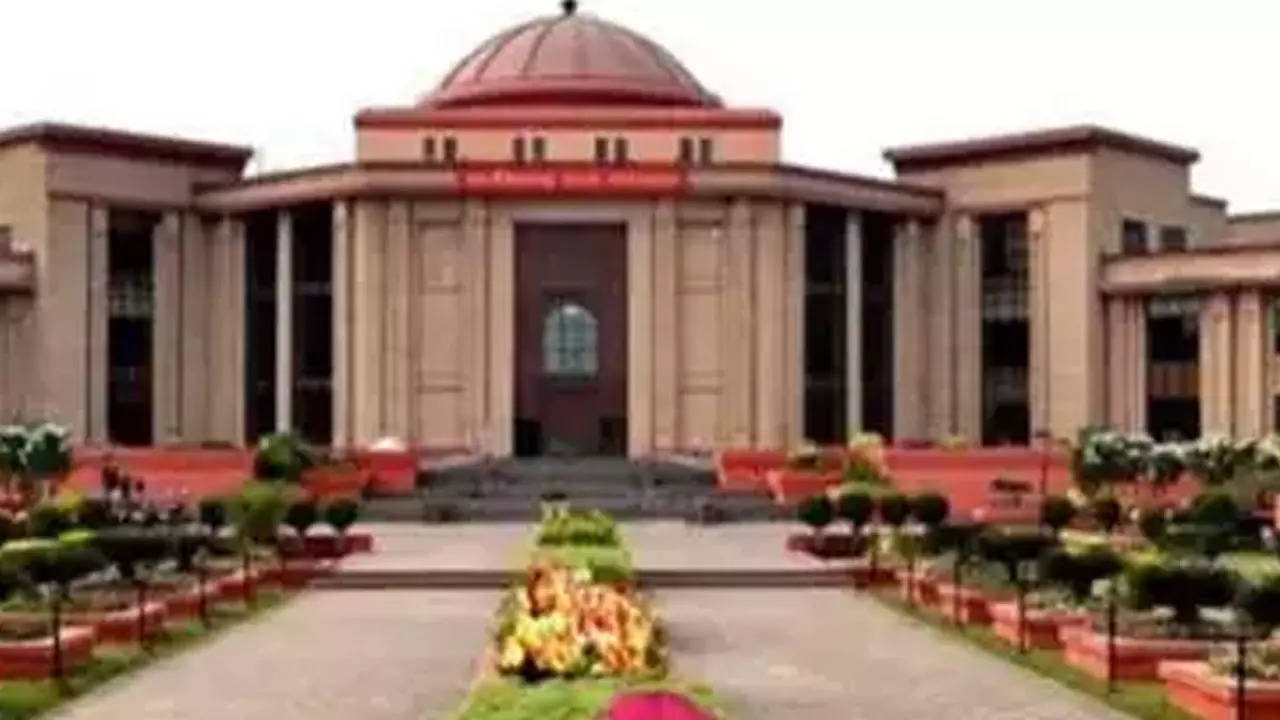[ad_1]
RAIPUR: Setting aside the judgment and decree passed by the trial court in favour of a husband in a divorce case, the Chhattisgarh high court has stated that the wife should not be treated as hired chattel or bonded labour to stay under the conditions imposed by the husband.
With this observation, the division bench of Justice Goutam Bhaduri and Justice Sanjay Kumar Jaiswal allowed the appeal of Priya Sharma, the wife of Sanjit Sharma. Both got married on June fifth, 2015.
After hearing the counsels for the parties, the High Court Division Bench said that the husband had stated that his wife left the house herself on May 27, 2016, and thereafter, he booked the hotel on the marriage anniversary on June 5, 2017. However, there is no evidence on record except the statements of two persons. If the hotel had been booked for the marriage anniversary, it could have been proved by adding evidence to show the payment thereof, the Court said in the judgment.
Further, the man stated that his father used to stay in Dhamtari, whereas it is stated that the wife did not want to stay with in-laws. The wife and the husband were residing in Raipur after the marriage.
If the father of the husband was residing in Dhamtari, which is at a considerable distance from Raipur, then such a statement of the husband becomes contradictory, the High Court observed. It has also been stated that since his father was in a government job, he used to come to Raipur during holidays. The fact that the husband projected that the wife never wanted to stay with the in-laws appears to be contradictory.
Counselling between the parties could not happen, and she stated that under the pressure of any kind of conditions, she does not want to settle, the Court said.
“It is obvious that if any terms and conditions are put forth which have not been stated by the husband, it is not expected that the wife should be treated as hired chattel or bonded labour to stay under the conditions imposed by the husband,” the High Court said.
Further, documents of counselling held in July 2016 showed that on account of threats to life having been received by the wife, she refused to stay along with the in-laws, in the counselling.
The parents of the husband were also not examined before the trial court to prove the husband’s allegation that the wife insisted on him to stay apart from his parents and misbehaved with them.
The wife also alleged that she was subjected to torture for the demand for dowry immediately after the marriage. Under the circumstances, when the wife refused to join the husband, reasonable reasons exist, the Court said.
The High Court ordered the husband, who is a government employee and draws a salary of Rs 34,000, apart from other immovable property, to give alimony of Rs 10,000 per month to the wife. The court also made it clear that as and when the salary is reciprocally increased, the amount of maintenance should be increased proportionally to the extent of the increase of the percentage in future salary, which the wife would be entitled to receive.
With this observation, the division bench of Justice Goutam Bhaduri and Justice Sanjay Kumar Jaiswal allowed the appeal of Priya Sharma, the wife of Sanjit Sharma. Both got married on June fifth, 2015.
After hearing the counsels for the parties, the High Court Division Bench said that the husband had stated that his wife left the house herself on May 27, 2016, and thereafter, he booked the hotel on the marriage anniversary on June 5, 2017. However, there is no evidence on record except the statements of two persons. If the hotel had been booked for the marriage anniversary, it could have been proved by adding evidence to show the payment thereof, the Court said in the judgment.
Further, the man stated that his father used to stay in Dhamtari, whereas it is stated that the wife did not want to stay with in-laws. The wife and the husband were residing in Raipur after the marriage.
If the father of the husband was residing in Dhamtari, which is at a considerable distance from Raipur, then such a statement of the husband becomes contradictory, the High Court observed. It has also been stated that since his father was in a government job, he used to come to Raipur during holidays. The fact that the husband projected that the wife never wanted to stay with the in-laws appears to be contradictory.
Counselling between the parties could not happen, and she stated that under the pressure of any kind of conditions, she does not want to settle, the Court said.
“It is obvious that if any terms and conditions are put forth which have not been stated by the husband, it is not expected that the wife should be treated as hired chattel or bonded labour to stay under the conditions imposed by the husband,” the High Court said.
Further, documents of counselling held in July 2016 showed that on account of threats to life having been received by the wife, she refused to stay along with the in-laws, in the counselling.
The parents of the husband were also not examined before the trial court to prove the husband’s allegation that the wife insisted on him to stay apart from his parents and misbehaved with them.
The wife also alleged that she was subjected to torture for the demand for dowry immediately after the marriage. Under the circumstances, when the wife refused to join the husband, reasonable reasons exist, the Court said.
The High Court ordered the husband, who is a government employee and draws a salary of Rs 34,000, apart from other immovable property, to give alimony of Rs 10,000 per month to the wife. The court also made it clear that as and when the salary is reciprocally increased, the amount of maintenance should be increased proportionally to the extent of the increase of the percentage in future salary, which the wife would be entitled to receive.
[ad_2]
Source link











More Stories
We can’t wait to face India in the final: Pat Cummins | Cricket News
Railways plans 3,000 additional trains in next 4-5 years to minimise number of waitlisted tickets | India News
Faridabad: Man dies after ‘falling from hotel room window’ while partying with friends